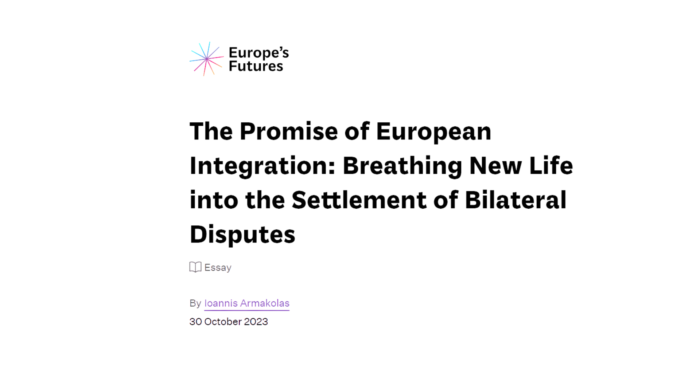Ioannis Armakolas as Europe’s Futures Fellow 2020/21 at the Institute for Human Sciences in Vienna explores in his latest essay the impact of European integration in tense situations in Europe’s periphery. As he argues there is little research attention on how the prospect of membership and the process of accession has an impact on the dynamics of the settlement of disputes in Europe’s immediate neighbourhood.
In this context he analyses how the membership perspective increases the chances for the settlement of a dispute, the central role power imbalances of the opposing sides play in the process as well as the status of the disputing states to their European integration; that is whether they are full EU members or aspiring ones.
He illustrates these arguments by focusing primarily on the so-called ‘name dispute’ between Greece and North Macedonia and their long diplomatic spat that ended with the signing of the 2018 Prespa Agreement which has been ‘key’ for the understanding of the dynamics existing between membership in European integration and dispute settlement processes.
The essay was written within the framework of the research he conducted titled “Learning from the Prespa Agreement: Is There a “Southeast European Way” of Settling Disputes or Should There Be One? Lessons for the European Union”.
You may read the essay here.
You can follow the South-East Europe Programme on Facebook and X.



